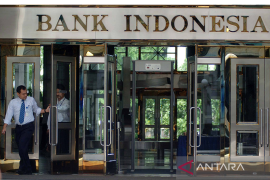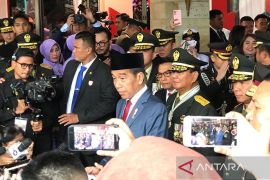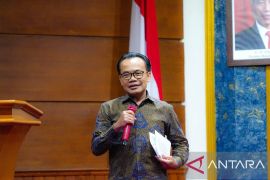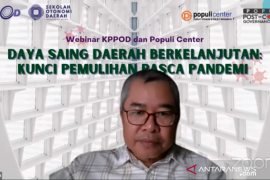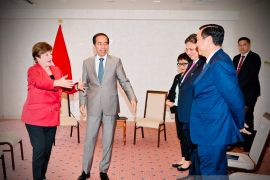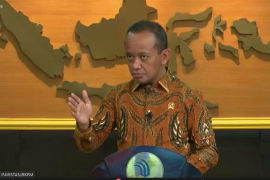Indonesia made the proposal at the G20 Summit held in Los Cabos, Mexico, on June 18-19, the Finance Ministry said in a press statement released on Friday.
"The G20 members approved the proposal and decided to follow it up later," the ministry added.
Indonesian President Susilo Bambang Yudhoyono, who attended the meeting along with leaders of other G20 members and non-G20 members, signed the declaration confirming G20 members` commitment to financial inclusion - a key component in the development of healthy, vibrant and stable financial systems that can contribute to sustainable economic growth.
The G20 members agreed to set up a national coordination board and expedite the adoption of a national strategy for financial inclusion in their respective countries.
The main aim of financial inclusion is to provide affordable financial services to the disadvantaged and low-income segments of the society, so they could develop their businesses.
The G20 Summit agreed that financial inclusion was important to build economic resilience and protect the global economy from future financial crises.
Therefore, the G20 leaders welcomed the commitment of G20 members as well as non-members to developing and implementing peer learning programs as part of the financial inclusion initiative.
They also urged the Global Partnership for Financial Inclusion (GPFI), the World Bank, and other international financial institutions to assist member states in implementing the financial inclusion program.
The G20 leaders also agreed that the current volatile prices of global commodities, particularly energy commodities, remained a serious challenge.
The unstable global commodity prices have had a negative impact on the global economic growth.
Therefore, the G20 leaders agreed to a report submitted by the Energy and Commodity Market (ECM) Working Group, called the "Macroeconomic Impacts of Excessive Commodity Price Volatility on Growth and Policy Options".
The report of the ECM Working Group, led by Indonesia and Britain, noted that excessive commodity price volatility might lead to an unstable market, which would eventually affect the economy.
The G20 members also called for transparency in the global commodity market and better supervision over commodity market players, including price reporting agencies. (*)
Editor: Kunto Wibisono
Copyright © ANTARA 2012
